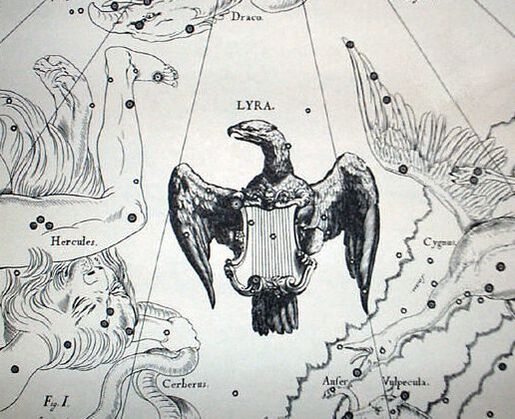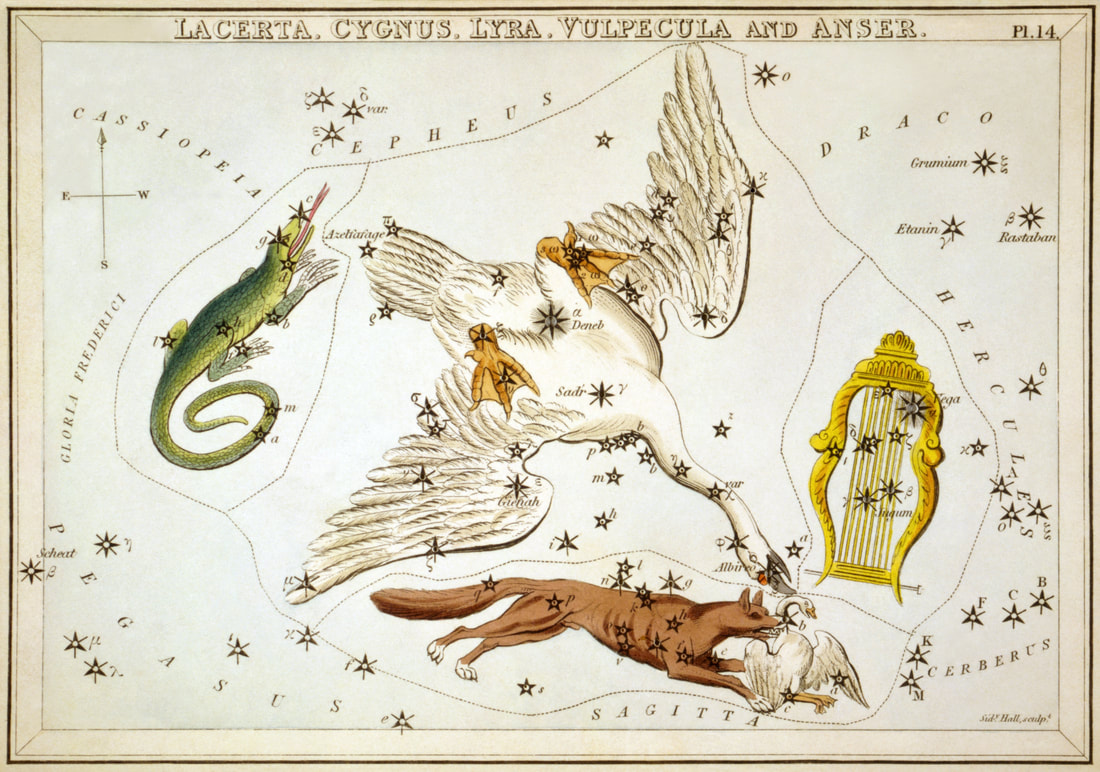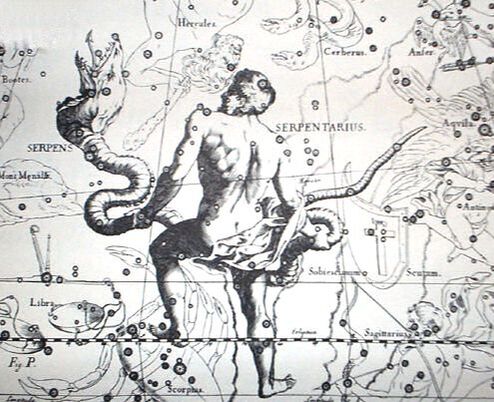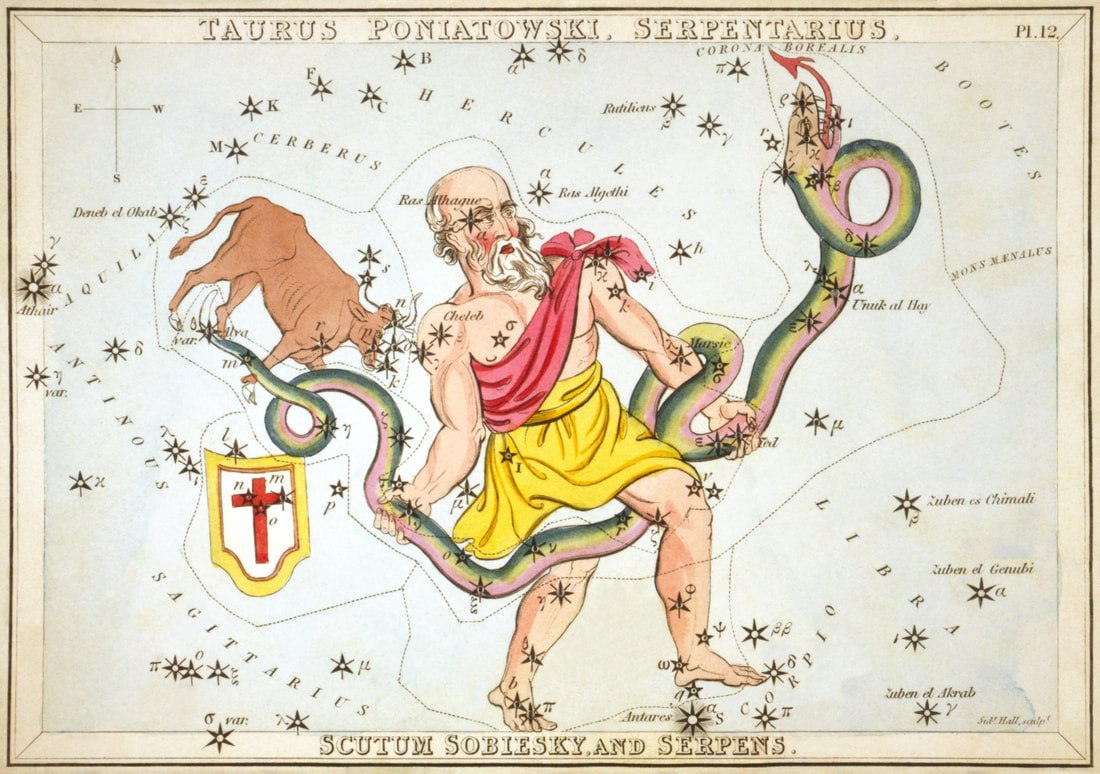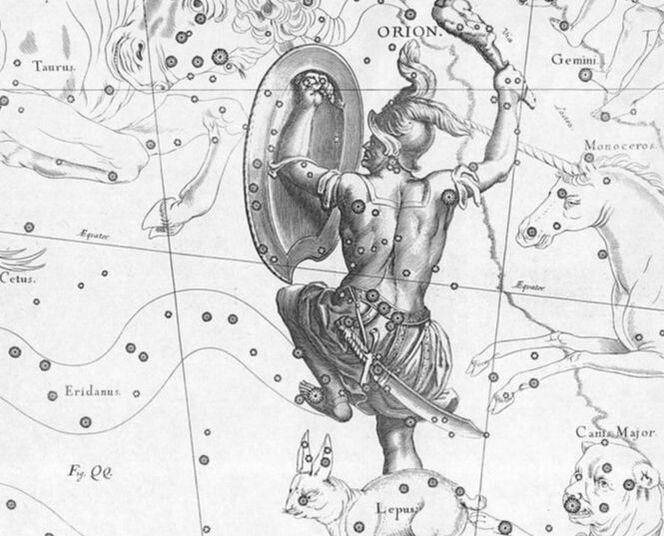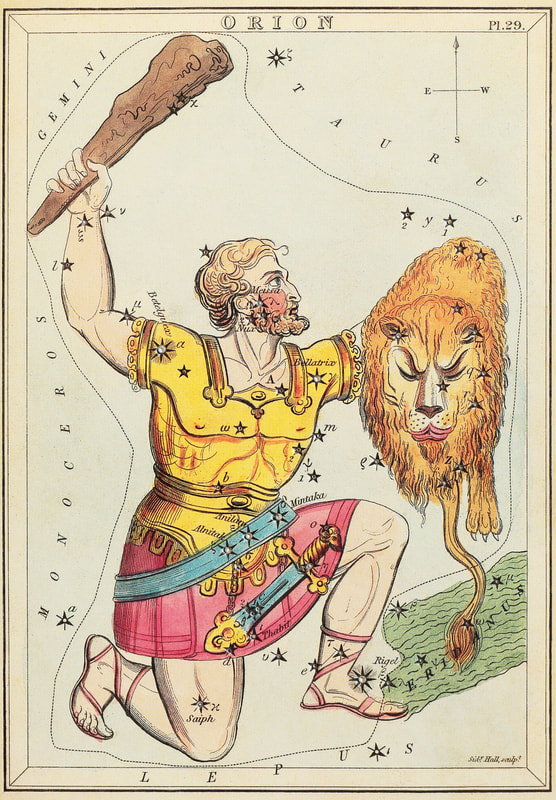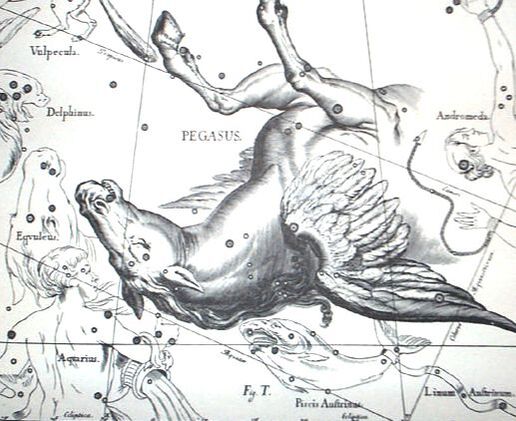THE CONSTELLATIONS AND GREEK MYTHOLOGY
|
Greek mythology and the Constellation Lyra
Lyra, the Lyre, is a constellation said to represent the Lyre of Orpheus. The lyre was originally invented by the new-born Hermes, making use of a tortoise shell. Apollo then exchanged cattle for this new musical instrument, and Apollo would later present this lyre to Orpheus.
Orpheus was a legendary musician with heroic characteristics, for it was said that Orpheus was one of the Argonauts. During the quest of the Argonauts, Orpheus was said to have used the lyre to overcome the sound of the Sirens. Later, would travel to the Underworld in a failed attempt to retrieve his deceased wife, Eurydice. After the death of Orpheus, his lyre was then said to have been placed amongst the stars by Zeus, as the constellation Lyra. Others, in Greek mythology, did make use of the lyre, and occasionally it is said that the lyre in the night sky belonged to one of these people, potentially Theseus, or Thamyris, the bard who foolishly challenged the Muses. |
|
Greek mythology and the Constellation Ophiuchus
|
The constellation Ophiuchus is normally depicted as a man holding on to a snake, there is though little agreement about who the man, in Greek mythology, is.
The theme of man and god wrestling with snakes was a common one in the tales of Greek mythology. Thus, it could be that Ophiuchus represents the Greek god Apollo and his struggle with the Python, the monstrous serpentine offspring of Gaia. Alternatively, Ophiuchus might be a recognition for some positive achievement, so perhaps the constellation represents Heracles, for the demi-god had once slayed a giant serpent in Lydia, or Phorbas, who had rid the island for Rhodes of snakes. The Greek god of medicine, Asclepius was also connected with snakes, for a snake wrapped around his rod was his symbol. The setting of a man with snake in the night sky could also be seen as a warning, and some tell of Ophiuchus being Laocoon, the priest of Troy who was strangled by sea serpents when his was set to reveal the secret of the Trojan Horse. |
|
Or else it was said to be Triopas, a king who destroyed a temple of Demeter to build his own house, or it was King Carnobon who killed one of the serpent who pulled the chariot of Triptolemus, and thus Carnobon too was punished by Demeter.
|
Greek mythology and the Constellation Orion
The constellation Orion is said to represent the great hunter Orion, a legendary hunter of Greek mythology.
A giant son of Poseidon and Euryale, Orion would become a companion of Artemis, and the two would often hunt together. Being a master of the hunt though, would prove to be downfall of Orion, for he would die at the hands of either Gaia or Artemis. Most commonly it was said that Gaia sent forth a giant scorpion to kill Orion, after the hunter had said that he would kill all of the animals found on the earth. Artemis would have his likeness placed amongst the stars, where he was joined by a hunting dog, the constellation Canis. Also in the night sky though, is the likeness of the scorpion that had killed him, the constellation Scorpius, and even now, as Scorpius appears over the horizon, Orion disappears. |
|
|
Greek mythology and the Constellation Pegasus
Pegasus is a legendary winged horse in the tales of Greek mythology, and so it is the creature most commonly associated with the constellation Pegasus.
The constellation though is also named as Equus or Hippos, Latin and Greek for horse, and so some also tell of the constellation being a representation of Melanippe, daughter of Chiron. Of the two, Pegasus and Melanippe, Pegasus is of course the more famous, for the winged horse was the offspring of Poseidon and the Gorgon Medusa, who was famously used by the Corinthian hero Bellerophon as he killed the Chimera. Pegasus though was also used by Zeus to transport his weapons, and so his likeness amongst the stars was done by the supreme god. Melanippe was the daughter of the civilised centaur Chiron. Melanippe would become pregnant by Aeolus, but fearing her father’s reaction, Melanippe would hide herself away in the forests of Mount Pelion. Chiron though sought out his daughter, and when he came near, Melanippe prayed to the gods that he might not find her, and thus she was transformed into a mare. Even in the night sky, when the constellation of Chiron appears, so Pegasus disappears. Alternatively, the transformation of Melanippe was a punishment from the gods, for she had revealed too many of their secrets to men. |
|
